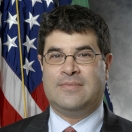
Ed. Note: Cross-posted from Treasury Notes
On the blog this week, we’re looking at some of the myths surrounding Wall Street Reform and setting the record straight. Today’s myth:
Myth #2: Wall Street Reform Puts the U.S. at a Competitive Disadvantage Internationally
Fact: The suggestion is puzzling—that a stronger and more stable financial system would create a competitive disadvantage. The strong protections offered by U.S. markets for much of the 20th century helped make our financial system the envy of the world. Rather than disadvantage the U.S. financial system, Wall Street Reform will assure investors that U.S. institutions and markets remain the world’s most attractive destination for investment—dynamic and innovative, but with a renewed strength and resilience.
In the wake of the financial crisis, the U.S. set a strong example by immediately committing to comprehensive financial reform. At the G-20 meeting in April 2009, and at multiple meetings since, world leaders have committed to a framework for financial reform to close regulatory gaps, end opportunities for arbitrage across regulatory systems, and prevent a global race to the bottom. Key elements of this framework included improving firms’ capital and liquidity positions, reforming the derivatives markets, and developing policies to address the financial risks posed by large, systemically important financial institutions. The United States moved first, enacting comprehensive financial reform last summer, and consistent with their international commitments, other major financial systems are now putting their legal and regulatory frameworks in place.
Strong U.S. leadership has been key to the important progress the world has made in the G-20 and other international fora. Working with our international counterparts, we have been able to reach global agreement on capital and liquidity requirements—to make sure that banks are better protected against stress—and are moving towards stronger standards for the derivatives markets, which were a major source of risk during the financial crisis. At the G-20 Finance Ministers meeting last week, we agreed to enhanced prudential standards for large, systemically important financial institutions, along with a new G-20 framework to resolve these firms without widespread disruption and cost to taxpayers.
Of course, as we implement our reform in the United States, it’s important that the rest of the world move forward as well, and we will continue to monitor progress in other jurisdictions. A level playing field is crucial to making sure that U.S. firms remain competitive and to preventing risk from simply shifting to other parts of the world.
The critics of reform should remember that in order to remain competitive, U.S. firms need a financial system that combines dynamism and a capacity for innovation with robust protections for investors and consumers. A strong foundation against financial shocks, whether domestic or international, is a crucial element of a strong economy: one that can attract investment; support long-term growth and job creation; and help protect American businesses, investors, and families in times of stress.
Learn more about the Dodd-Frank Wall Street Reform and Consumer Protection Act.
Neal S. Wolin is Deputy Secretary of the Treasury.


